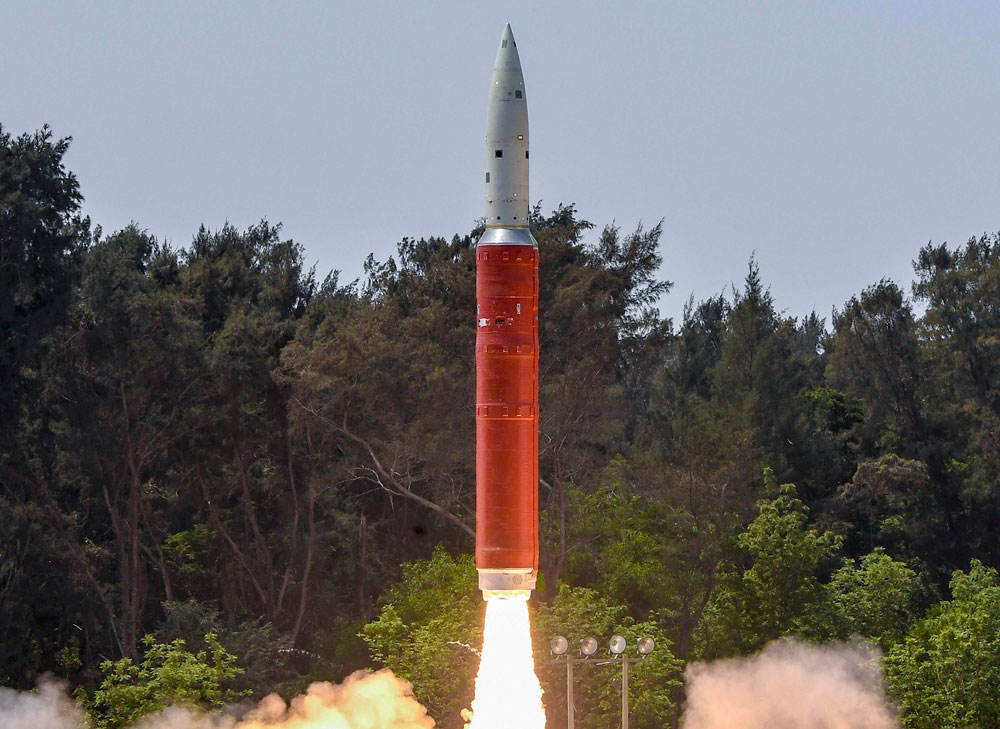A mix of concerns relating to global geopolitics and the upcoming general election may have influenced India’s decision to conduct its anti-satellite missile test, analysts said on Thursday amid suggestions that India was otherwise capable of doing it at least five years ago.
Prime Minister Narendra Modi had in an address to the nation on Wednesday announced that India had used a home-grown interceptor missile to destroy a satellite 300km above the Earth.
Both the timing of “Mission Shakti” and the Prime Minister’s decision to personally make the announcement have stoked speculation, especially in the light of suggestions that India had developed the core technologies for anti-satellite weapons more than five years ago.
Niti Aayog member V.K. Saraswat, a former chief of the Defence Research and Development Organisation (DRDO), told TV channels on Wednesday that the test could have been conducted earlier but permission wasn’t forthcoming from the then UPA government.
Aerospace and strategic analysts said that Chinese, Russian and American advances in anti-satellite technologies and discussions in international strategic circles about a possible ban on anti-satellite weapons to prevent space debris would have influenced India’s decision.
“There have been increasing concerns over the past decade about space weaponisation and a possible ban on A-Sat (anti-satellite weapons) tests — although there is no specific proposal yet,” said Rajeswari Pillai Rajagopalan, head of the nuclear and space policy initiative at the Observer Research Foundation.
“There are global trends within the space domain to justify a test, but the timing I think may be best explained by a domestic agenda.”
The DRDO had conducted its first test with an interceptor missile in November 2006 and followed that up with several more to develop a ballistic missile defence system with technologies similar to those required for anti-satellite weapons.
But some aerospace and missile technology experts argued that even with core technologies available with India in 2012 — as indicated by senior DRDO scientists — there may have been technological reasons why the country could not have conducted a test then.
“Even if the technology building blocks were available, the overall system could have been some distance away,” said a senior aerospace and missile scientist who requested not to be named.
“But the exercise (anti-satellite test) must have been planned well in advance — it required building a satellite for low-Earth orbit operations, its placement in the 274km orbit, and then the A-Sat experiment itself.”
Another strategic technology analyst highlighted that India had joined the global club called the Missile Technology Control Regime (MTCR) only in 2016, and a test before that could have jeopardised the efforts to gain its membership.
“Any A-Sat test would for sure have been used by some MTCR members to block our membership,” said V. Siddhartha, a senior analyst formerly with the DRDO and the country’s space agency, Isro.
“Note how Italy had blocked our membership of the MTCR until we returned the Italian marines who had killed our fishermen.”
Senior aerospace and strategic analysts cite parallels between anti-satellite weapons and nuclear weapons — both being offensive but intended to deter adversaries. Only the US, China and Russia had so far demonstrated anti-satellite weapons capabilities.
A US Defence Intelligence Agency report in January this year had underscored concerns about the growing weaponisation of space, predicting that Beijing and Moscow would “continue to see space as integral to winning modern wars” and were developing systems that posed a threat to the freedom of action in space.
The report had said that since China’s anti-satellite test in 2007, the country had established “an operational ground-based A-Sat missile intended to target low-Earth orbit satellites” and had formed military units that had begun training with anti-satellite missiles.
The report also said that Russia was probably developing a ground-based mobile missile system capable of destroying space targets, and that the weapon system was likely to be operational within a few years.

